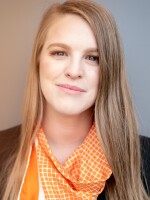Popular culture tells us that college "kids" are recent high school graduates, living on campus, taking art history, drinking too much on weekends, and (hopefully) graduating four years later.
But these days that narrative of the residential, collegiate experience is way off, says Alexandria Walton Radford, who heads up postsecondary education research at RTI International, a think tank in North Carolina. What we see on movie screens and news sites, she says, is skewed to match the perceptions of the elite: journalists, researchers, policymakers.
Today's college student is decidedly nontraditional — and has been for a while. "This isn't a new phenomenon," Radford says. "We've been looking at this since 1996."
So, what do we know about these "typical" college students of today?
Radford has done a lot of research on this and defines the nontraditional student as having one or more of the following characteristics:
Close to 74 percent of undergrads fall into one of these categories — and about a third have two or three. "I don't think people have got their heads wrapped around that yet," Radford says.
So here's a snapshot of the 17 million Americans enrolled in undergraduate higher education, according to numbers culled by the National Center for Education Statistics.
As demographics shift, Radford argues, policy should follow.
It's vital that institutions look at the characteristics of their undergrad cohorts, she adds, to explore how to address their students' unique concerns.
Perhaps that means offering services like financial aid, advising or tutoring after-hours (instead of the typical 9 to 5). Maybe it means offering child care for student-parents, or extra parking for commuters.
One thing for sure, says Radford, is that it's probably time to coin a new phrase for nontraditional students, considering they are the new normal.
The NPR Ed team will be covering the challenges and triumphs of today's higher ed students this year, as part of a new project called the Changing Face of College.
Copyright 2022 NPR. To see more, visit https://www.npr.org.



